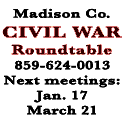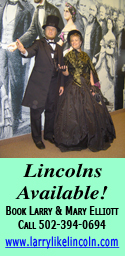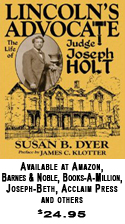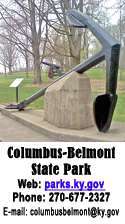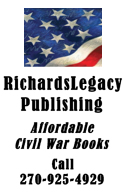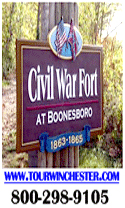|
What’s wrong with Civil War books?
Four areas require some consideration
By DOUGLAS LIPPMAN
Bugle Staff Writer
Although electronic books are taking the place of printed books today, one theme remains constant. Of all the non-fiction subjects chosen by writers, the American Civil War is the leader. Each year, hundreds of new books on the subject are added to the list of those already in print. Older books are reprinted, or made available as electronic presentations. The American Civil War has long mesmerized the public and yet there remain certain basic problems in most Civil War publications.
If a writer has walked a battlefield, he frequently feels his description of the terrain is sufficient to create a mental picture which is obvious to all. Unfortunately, this is seldom the case. One article described large sinkholes which disrupted Union formations, yet there were only a few small sinkholes on the entire battlefield. According to the park rangers, the author had never visited the killing ground. This all points out the need for numerous maps in any good Civil War book.
Unfortunately, publishers are reluctant to allocate extra pages for maps or pictures. This makes the book more difficult to understand and more tedious to read. Battle maps need to be provided in an hour-by-hour basis, much like some of our modern Civil War magazines contain.
A second problem is writing style. In graduate school, students write highly scholarly papers for Ph.D.’s who are their instructors. Some say that practice makes perfect, but few instructors would agree.
This constant production of small-scale monographs is poor preparation for writing for the general public. Some authors are naturally gifted writers and they have an advantage over their peers. But the stale, monographic style of writing, with dozens of footnotes, is not at all attractive to the general public. This opens the door for lawyers and journalists to enter the field of historical writing. Some write with the spellbinding magnetism of a novelist, but their research frequently does not match the quality of their writing ability. Interpretation is necessary if a chronicle is going to be made into history. But how shall we maintain our objectivity in order to write an account of an event which is largely free of our personal bias? For years, graduate students in history were told to keep their personal agendas out of their writing. While that was attempted, it proved quite difficult to do.
Another area of concern is books driven by the writer’s personal agenda. While interpretation is necessary for a chronicle to become history, authors should strive to avoid incorporating their personal bias into their works. With the constant demands on professors to “publish or perish,” a number of the “new interpretations” lead to the publication of poor history. The agenda of the writer becomes the focal point of the book, rather than the subject presented in the title.
A final problem which surfaces is the sad lack of preparation for writing these books. Those of us who have done our graduate work in history classes since the 1960s have been inundated with an overemphasis on some arenas of history and a bias against others. Diplomatic history, political history and even cultural history were largely frowned upon, while socio-economic history was emphasized in most of our modern, liberal arts universities.
This reflected the interest in the Marxian perspective of history, which is still common among liberal professors. While socio-economic history had been underrepresented in earlier days, we developed our own prejudice. Military history became the unwanted child in many history departments.
This leads to a strange paradox. Students who were not trained in military history are now writing books about the tactics and strategies of the Civil War. The irony is unmistakable. Many brilliant writers make more errors when discussing the military aspects of the War Between the States than while discussing the societal or economic aspects of the war. Some would say that this was inevitable. They try to provide what the public and the scholars want, but are frequently ill prepared to do so.
We all are human and the challenge of writing a book containing thousands of facts is daunting. By the time the author has written 500 pages, what are the chances that all of those “facts” are correct? Excellence in editing becomes almost impossible. There is an enormous amount of work which goes into earning a Ph.D., and this accomplishment is to be lauded. However, no one is infallible.
It would be unjust to stop here, for Civil War books, despite the limitations of their authors and publishers, are extremely popular. Any Civil War reader is familiar with names like Shelby Foote, Carl Sandberg and James McPherson. Yet, they represent three distinctly different types of writers. So perhaps we readers should be fair and judge each book by the strengths and limitations of its author. But then, that would require some research on our part and who’s to say that we wouldn’t have an agenda?
|

